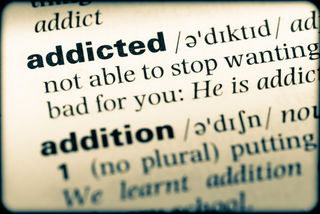This simple test could reveal the truth about your marriage.
 There is this story about 2 judges who were meeting for lunch. One was matrimonial and the other adjudicate criminal cases. The criminal court judge said “Do you know the difference between my court and yours? In criminal court, my cases involve really bad people who try to look really good. In your matrimonial cases, you have really good people who look really bad.”
There is this story about 2 judges who were meeting for lunch. One was matrimonial and the other adjudicate criminal cases. The criminal court judge said “Do you know the difference between my court and yours? In criminal court, my cases involve really bad people who try to look really good. In your matrimonial cases, you have really good people who look really bad.”
Marriage is hard and deeply complex and yes indeed, it can bring out the worst in even us really good people.
Did you ever listen to couples argue? It’s horrible. Two people in love trying to destroy the other. The things they say to each other:
“You don’t know what you’re talking about. You never know what you are talking about.”
“Can you possibly be any more stupid?”
“Your mother did the same thing her whole life and now you’re doing it. She has totally ruined you.”
“You are one coldhearted bitch!”
Marriage is the single most difficult thing most people will do in their lifetimes. To be in constant contact with one person day and night, year in and year out takes almost everything a human being can endure. I don’t think a could even live with myself over a lifetime! It can squeeze us to our limits, bringing out the worst in us, a fact that TV sitcoms have used for years to make millions by having us laugh at marriage.
Let’s face it, couples argue and fight. But couples can go beyond that and become critical of each other’s very personality and identity, often going on a “search and destroy” mission in which they find their partner’s weakest attributes and hammer away at them.
I’m not talking here about what most people call constructive criticism. There are clear differences between criticism and offering advice or even critiques. When an individual is critiquing or making suggestions, they are sticking to the issues at hand. When a person becomes critical, they are attacking the very essence of their loved-one's personality. In a healthy relationship, a couple would naturally offer advice or suggestions to the other. This would be based on a healthy interdependence in which each one would influence the other in love. Criticism, on the other hand, tears a person down while remaining nonproductive in resolving marital issues.
For years, psychologists have recognized that day-to-day criticism by a parent of their child can be so harmful that it can produce any number of mental disorders in the child. Our psychotherapy practices are packed with individuals who have had critical parents. And although it can have similar effects in marriage as well, divorce is the most likely outcome.
Marriage guru John Gottman along with his wife Julia have shown in their empirical research that criticism of a spouse can greatly increase the chances of divorce. Best known for their famous “Love Lab,” the Gottmans collected data on hundreds of couples in real time, scientifically observing and processing couple interactions. They identified what is called the “Four Horsemen of the Apocalypse of Divorce." These are criticism, contempt, defensiveness, and stonewalling. The Gottmans have shown that these four things in a marriage have a high likelihood of producing a divorce. While the present blog addresses only criticism, I encourage you to learn more about the other three and in the Gottman’s research in general.
I believe that habitual criticism of a spouse is an addiction just like a heroin or alcohol addiction. Chronic criticism in my mind shares all the features of a typical addiction. This is because critical people cannot seem to stop their criticisms (just like an alcoholic can’t stop drinking) and seem to seek out situations where they can be critical (like an alcoholic searches for alcohol). Furthermore, they feel better when they are criticizing their spouse just the same as alcoholics do when they drink. And although I am unaware of such research, I would hypothesize that there are even similar brain events going on in the brains of those who are addicted to alcohol and those who are addicted to criticism.
I have used in my practice a very simple procedure to determine whether or not a particular spouse is addicted to criticism. It is fast and simple and usually produces accurate results. I say to the critical spouse that there are two types of critical people: One type offers good advice to their spouses because they truly want to help their spouse out of altruistic reasons; while the second group has an actual addiction to criticism and are trying to regulate their own feelings by hurting their spouse. I go on to say that there is a simple test to determine which type they are. For one week, they are not allowed to offer any criticism of their spouse. If the person is truly addicted, they will not be able to stop. If they are simply offering advice, it would be easy for them to stop. In most cases, the person is forced to admit that they could not stop and may have to look into themselves as the source of criticism. In most cases and much like the alcoholic, the critical spouse cannot stop.
It is easy to dislike a critical person and dismiss them as being the source of all problems. But if you look into their pasts, you will most likely find that they themselves were the victims of criticism as children. When this type of constant criticism of a child occurs, it creates brain changes, producing a schema; or more simply a distorted lens through which a person looks and interprets life’s events. This schema leads them to seek out the bad somewhere in the good. Something can be 99 percent wonderful, for example, but they will focus on the 1 percent that is “wrong." They might see a great movie only to focus on the minutia of something they didn’t like ("the star seems to be balding"). They might go to a party where everybody enjoys themselves but they feel a particular hors d’oeuvre could have been spicier or that a particular party-goer was too loud when they spoke.
Sadly, as critical as a critical person is with others, they are often more harshly critical of themselves. They can be their own worst critic. I have found that when an individual can openly accept this in themselves, the marriage improves.
Oh yeah, and the “addict” has a real chance of being set free.

